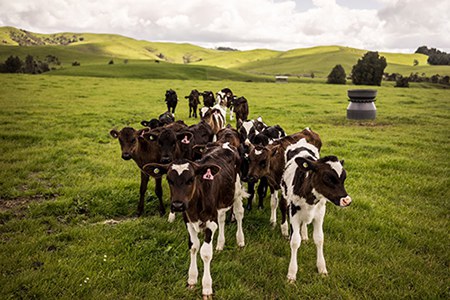Protecting our value in a volatile world
 We are consistently rated one of the least corrupt countries in the world and we are rightfully proud of that. What, if anything, does that mean for our reputation overseas and how do we protect it in a world where values might be changing or are different to our own?
We are consistently rated one of the least corrupt countries in the world and we are rightfully proud of that. What, if anything, does that mean for our reputation overseas and how do we protect it in a world where values might be changing or are different to our own?
These are the questions we had the opportunity to discuss at the Leaders Integrity Forum earlier this month.
We heard from Rebecca Smith, from the New Zealand Story, about how important our international reputation or brand is to how we seen as a place to live and do business. The New Zealand Story Group has been set up to enhance New Zealand’s reputation beyond its natural beauty, to provide marketing resources and tools for people and businesses to tell a compelling story about New Zealand that is grounded in our values and resonates with the world. It’s about making New Zealand known for more good things.
Rebecca explained that what shifts international perception of a country in today’s world is how trusted, free, and moral a country is. The “new pursuit is living richly, not just living a rich life”. To enhance our reputation, they are focusing on three values in particular: kaitiaki, ingenuity, and integrity.
We also heard from Marc Rivers, the Chief Financial Officer of Fonterra, who shared a private sector view of what makes New Zealand distinct. Although our country has a reputation for being corruption-free and doing the right thing, Marc explained that corruption is prevalent in many of the countries that Fonterra does business in. The company asks its people to constantly refer back to and use its purpose and values to guide how they act and do business in those countries. That purpose is about working together and empowering people to “create goodness for generations”. However, Fonterra goes further than that. Marc reminded us that “culture eats strategy for breakfast” and outlined several practical steps the company takes to raise awareness and manage risks of bribery and corruption. They included:
- a commitment at the highest levels of the company and leaders setting the tone;
- carrying out risk assessments;
- having policies about the “the way we work” and ethical standards and embedding those in areas with heightened risk (such as procurement, payroll, and employee expenses);
- training and communication;
- carrying out a due diligence assessment of partners, agents and contractors; and
- monitoring and evaluation.
He also shared with us a thought-provoking list of measures that a country, including New Zealand, could consider to reduce corruption, taken from the work of Augusto López Claros (Director, Global Indicators Group at World Bank). Those measures include:
- creating a system of reward and punishment to encourage honesty and punish dishonesty;
- paying civil servants a good wage relative to private sector;
- having greater transparency (“light is the best antiseptic”), with free press and high literacy;
- the use of technology is processes such as public procurement and tax collection;
- lighter regulatory burden (reduce red tape);
- eliminating subsidies which distort market prices (and inadvertently create black markets); and
- a recognition that the character of the participants matters.
These themes were then picked up by Adrian Crompton, the Auditor-General for Wales (who was in New Zealand for an international conference and a visit with our Office). Adrian reflected on how fragile international reputations can be and how diligent we need to be to protect them, sharing some fascinating views from his UK perspective.
Before taking up his current role, Adrian built up significant experience working with countries in the Middle East and North Africa looking to build democratic systems based on the Westminster model of government. That system has a long-standing history and reputation – built over hundreds of years – for stability, tolerance, checks and balances, openness, and the ability to challenge decision-makers. Countries transitioning to a more democratic model look with envy on those tenets of the system. However, Adrian sounded a strong note of caution – in today’s world of polarising politics and an increasing gap between the rich and poor, there is a risk of taking for granted a system which is, in fact, more fragile than we might think.
Adrian’s reflections on the Brexit referendum and resulting debate illustrate exactly that – the process has, in quite a short period of time, eroded the trust and confidence in their system of government, both in the UK and abroad. He described a system where there has been a break down in trust – in the institutions of government, politicians, and the civil service, as well as experts, evidence, and data.
At the end of the session, I was left with the sense that it is for each of us to play our part in enhancing and defending our reputation. We are one of the least corrupt countries in which to live and do business and we are seen as a moral society with integrity. But that perception is fragile and will not stay that way by accident. We need to work hard at maintaining that reputation and not be complacent. As our own Auditor-General, John Ryan, put it in summing up the forum, the public service has an important part to play in setting the tone for the country.
